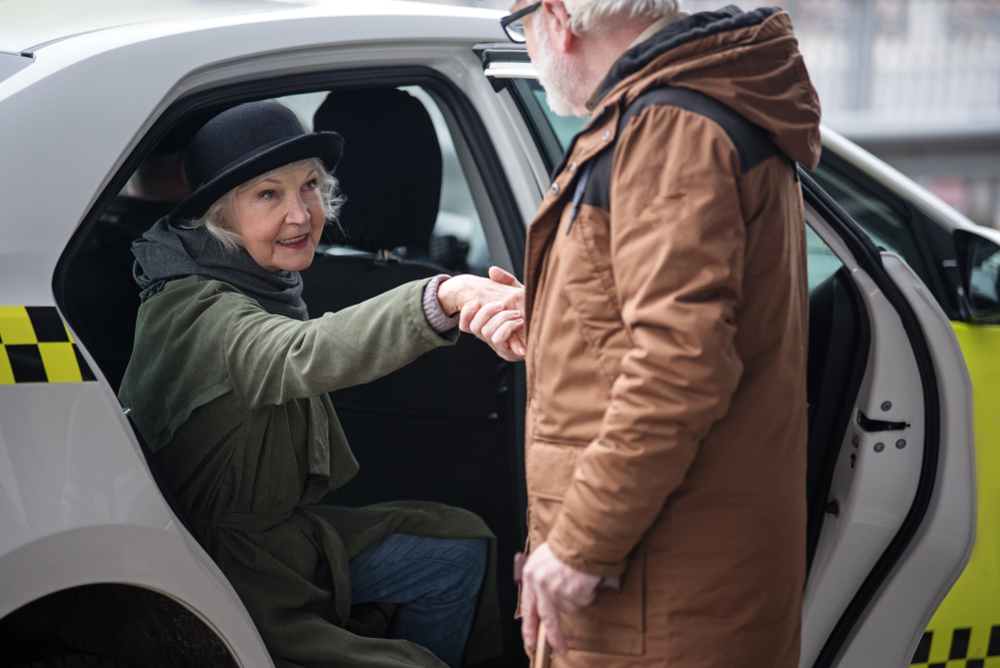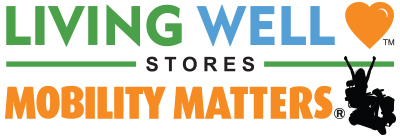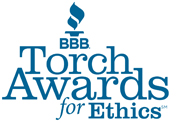
One of the most challenging conversations between parents and their adult children is whether the parent should continue to drive their car.
My friend was spared that conversation when her father realized his attention and decision-making while driving were no longer adequate. He immediately handed over the keys after running a stop sign he didn't see.
Another friend wasn’t so lucky when she had to insist that her loved one turn over the car keys after two accidents.
Don’t wait until you or a loved one is involved in an accident to evaluate your driving ability. At the end of this article, we provide links to useful tools to help you make that evaluation. AARP lists these eight warning signs that your driving skills may be unsafe:
- Your response is delayed to unexpected situations
- You become easily distracted while driving
- You experience a decrease in confidence while driving
- You have difficulty moving into or maintaining the correct lane of traffic
- You hit curbs when making right turns or backing up
- You discover you are getting scrapes or dents on car, garage or mailbox
- You have frequent close calls
- You are driving too fast or too slow for road conditions
It's easy to tell ourselves that it's not my fault; it's the situation. Giving up driving not only affects our ability to get from point A to point B, it feels as if we are surrendering our freedom to get up and go, to interact socially.
There is good news, despite those feelings of potential loss. You can use the tools below to evaluate your abilities privately and honestly consider your situation. With the results of the evaluation, speak with your children, spouse or partner about how your mobility could be impacted. Get their thoughts on how they could also be affected if you give up driving.
The other good news is that today alternate forms of transportation are more available than ever.
My 80-something-year-old mom took her first taxi ride recently. In our small town, that meant a small company with caring dispatchers and drivers interacted with mom. They helped her understand why she should schedule her ride in advance whenever possible, and the driver assisted with transporting her walker.
It was Mom's decision to stop driving for a while. She was under a lot of stress, lacked confidence, and was distracted by other things. She recognized that her skills weren't what they should be and made the decision to seek additional forms of transport. Some trips I was her transportation, other times she scheduled a taxi.
If you or a loved one have repeatedly experienced several of the warning signs listed above, please use the resources below to evaluate driving skills and seek alternative means of getting around.
Useful Resources for Drivers and their Family:
Take the AARP Smart Driver™ online course (click here) and see how much you could reduce your auto insurance costs.
AARP’s We Need to Talk online seminar offers practical tips on talking with your loved one about their driving and suggestions on transportation alternatives.
National Safety Council (https://www.nsc.org/road-safety) has a wide range of driving safety articles and information on driving safety programs, including state-certified defensive driving courses.
Read our blog, Know Before You Go – Traveling by Car with Your Power Scooter or Wheelchair for tips on traveling with a scooter or wheelchair.
Transportation Options
Family and friends are an obvious one, but with hidden benefits. Engaging in social interaction has been linked to improvements in feelings of well-being and physical and mental health. Ride to church with a friend or take a driving relative to lunch on the condition they drive. Make it not just about transportation but a social event.
Paid transportation options.
- Some paid caregivers provide transportation to and from doctor appointments, grocery shopping, and other destinations.
- Public transportation explicitly designed for elderly or disabled riders. Contact your local Council on Aging (the actual agency name may differ). To find out what is available in your area, dial 211 on your phone to learn about essential community services.
- Taxi services can be scheduled in advance and don’t require special technology. If you aren’t familiar with the taxi services in your area, look it up on the internet or call 411 for information.
- Ridesharing such as Uber and Lyft often require using a smartphone to schedule the ride. Senior adults may not be comfortable with the technology, and some ridesharing services have recognized the opportunity to help overcome this limitation.
- To request an Uber from your PC, click here to go to the Uber website to set up an account and request a ride. You will still need to provide a cell phone number to keep in touch with your driver. You will also need to schedule your return trip if you plan to use Uber.
- To request Lyft from your PC, click here to go to the Lyft website to set up an account and request a ride. You will also need to schedule your return trip if you plan to use Lyft.
- Both Uber and Lyft provide some accommodations for riders with disabilities. Coverage for these services is most prevalent in larger cities, so if this is a requirement, let your driver know in advance.
- To read more about how Uber aids riders with wheelchairs, scooters, or similar requirements, click here.
- To read more about how Lyft aids riders with wheelchairs, scooters, or similar requirements, click here.
Recognizing the signs that it may be time to stop driving requires courage and self-awareness. We hope the tools included in this article help you evaluate if the time has come for you or a loved one to experience new adventures through alternate forms of transportation and leave the driving to someone else.













